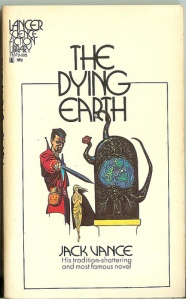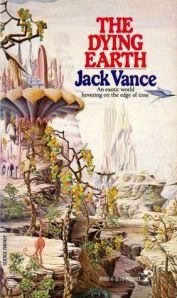June Books
Counting books finished, ‘cause no one cares about the books stacked up on the back of the hopper/beside the bed/couch.
1. The Ocean at the End of the Lane – Neil Gaiman.
Oh wow. A book for adults by Neil Gaiman… which means it’s 10 pages of a sad man remembering being a sad kid, then a 170 pages of him as a sad kid and his adventures with the magical pixie dream girl that lived down the road, until finally ten more more pages of the sad man sighing while he looks at a body of water. Yeah, “for adults”… well, at least it was short.
2. The Mapmaker’s War – Ronlyn Domingue.
I hate bloated epic fantasy with a white-hot hatred that could blind the baby Jesus, and the fact that your standard fantasy novel nowadays is 500+ pages of grimdark neckbeardio “world building” only makes my blood boil. So when this book crossed my radar, likely via amazon algorithm, the first thing I did was check out the page count. It was less than 300 pages. That was enough to make me want to read it.
Domingue’s The Mapmaker’s War reads like a blend of William Morris, Ursula K. LeGuin, and Jeanette Winterson mixing social allegory and utopian yearnings with keen-edged, descriptive prose. Fantasy fans deeply embedded in the genre will likely view the book with suspicion, since it’s “literary” in unacceptable ways: 2nd person narrator, unconventional dialogue tags, and lots of summary. Don’t be one of those people. Give it a read. It’s refreshing to read a secondary world fantasy novel completely orthogonal to the genre.
3. The Christmas Witch – M. Rickert.
So I have a stack of old SF magazines from the past 20 years and I’ve been slowly flipping through them. Most stories are meh, but some are not meh. This is a non-meh story, er, novelette. What a novelette is I can’t be bothered to care, likely it has to do with word count and is only important during award seasons. Anyway…
This is a creepy story about a creepy kid set in a small New England town where you’re not sure if the fantasy elements are real or imagined, and honestly, that hardly matters unless you’re a pedantic dope. It’s Stephen King country, but it’s not. If you have a stack of old of SF magazines from the past 20 years sitting around the house, this story is definitely worth checking out.
4. The Fifth Head of Cerberus – Gene Wolfe.
A reread. Three interlinked novellas, the first is a coming of age story set in a brothel run by a genetic engineer, the second is a “tale” told by aliens about the events leading up to the arrival of intergalactic colonists, the third is a security “report” about a prisoner in a remote prison, who may or may not be a shape-shifting alien. If you’ve never read the book, I recommend it.
5. Meet Me in the Moon Room – Ray Vukcevich.
A short story collection by turns funny, sad, whimsical, and absurd. Most of the stories hone in on small moments and instances like an alien possession while folding one’s laundry, and they conclude and let you go almost as if they were jokes. My favorite story was “Beatniks with Banjos”.
6. Empty Space: A Haunting – M. John Harrison.
Some folks read books to be entertained, others to have a good experience. I read books for their mind-altering capabilities, and M. John Harrison delivers the goods. Definitely not for everyone, but if it’s for you it’ll twist around the way you look at the world.
Some Further Words Anyways
Some thoughts on the SF/F genre sparked by the recent, latest, and ongoing SFWA crack-up.
What remains remarkable to me is the genre’s continuing ability to remain stagnant and gleefully rooted in its past. We’ve had over half a century of revolutionary SF with a clear line of fiction and artwork going back to the 60s and earlier. Whether it’s Chip Delany, Ursula LeGuin, or Joanna Russ, the heritage is there for a genre informed by more than the utopian technocratic dreams it sold itself. But Feminism, the New Wave, cross-pollination from other genres, radical world politics or literary techniques… they all bounce off – or get uprooted and thrown away because those who’ve settled in and claimed “the core audience” status don’t want them there. The genre has a tendency to chew up those it deems to be intruders or unworthy of its “affection”* and spit them out.
I dearly hope to see this cycle end. Diversity, in all its meanings, should be a no-frills default feature and not some extra. Instead it’s gotten to the point where I’ll read a great genre book by a woman/minority/genre-outsider and wonder how long it will be before they get driven out.
A remarkable thing to see in the genre of “ideas”.
May Books
1. The Witches of Karres – James H. Schmitz. A fun little Space Opera novel. Captain Pausert is your typical rogue with a heart of gold starship captain, long on luck, short on credits. He rescues a trio of slave girls and is soon caught up in a series of adventures. It’s a light-hearted book that gets more than a little wonderful in places. Occasionally it has a sour note (mostly of the precocious teenage girl that flirts with an older man that resembles her father variety), but there’s also much to love: monstrous planets, spider-robot assassins, weird world building, etc.
2. Fury – Henry Kuttner. Classic science fiction of the egomaniacal supermen and the ballgown-wearing women who love them variety. Deliriously fun. Weird narcotics, crime, murder, and mayhem all in the name of progress because man’s destiny is to rule the stars!
3. A Stranger in Olondria – Sofia Samatar. An amazingly rich and textured fantasy novel about a young scholar’s attempt to free himself from a ghost. There’s a lush world to get lost in here, of history and story, without any bloated POV immediacy or tedious door opening. It reminded me of the best bits of Jan Potocki’s Saragossa Manuscript. Read it.
4. Snitch World – Jim Nisbet. A small time crook collides with amoral dot-com venture capitalists in modern day San Francisco. What plot there is focuses largely on a top secret under development phone app, but the real entertainment is in Nisbet’s prose and vivid depiction of San Francisco. An enjoyable book, both funny and sad in a “Those days are gone, but the people live on” kind of way. Folks who have lived in San Francisco may also get an extra kick out of it.
5. God Save the Mark – Donald E. Westlake. A comedy of errors dressed up as a noir novel and populated with hard-nosed cops, femme fatales, and con artists, all of whom are out to get the most gullible man in Greenwich Village. An entertaining book.
6. An Artist of the Floating World – Kazou Ishiguro. A short, bitter-sweet novel about an elderly Japanese man coming to terms with life in post-war Japan. The narrator shies away from the crux of his problem, and the reader is left to surmise via oblique plotting what it is he did in his past that he’s so ashamed of now. It never quite matches The Remains of the Day, but the moments when it is good are very good indeed.
7. Nobody Move – Denis Johnson. A bit of a whirlwind ride as lowlives and petty crooks maneuver and manipulate each other for revenge, kicks, and greed. Johnson tips his hat to the masters, and noir and thriller fans will find enough here to keep them satisfied. It reminded me a lot of Jim Thompson’s The Getaway.
8. The Status Civilization – Robert Sheckley. It’s 1950s SF in the hip mode (think Bester and Pohl) with one of those What-If planetary monoculture set-ups. What if a world was populated by mental patients? What if a world was populated by Medieval re-enactors? In this case it’s What if there was a prison world where evil was considered good? It’s dopey, not completely Bizarro World, but certainly not The Dispossessed either – and every now and then the satire’s quite nicely sharp and pointed.
9. American Gods – Neil Gaiman. Overwritten and much of the first half is a drive-to-the-plot plot, that morphs a bit late into the picaresque, which sadly stops just as it hits it stride and becomes a sit-and-wait-for-the-plot-to-happen plot. It’s also written in that let-me-describe-everything-to-you style that makes good 60,000 word novels into shitty 120,000 word novels. Would I have liked this book more if I hadn’t already have read tons of Chesterton, Leiber, Barker, etc. couldn’t see the lineages of the book’s ideas? But would I have read Chesterton if I hadn’t read Sandman as a weird comic-reading teen nerd? That’s the question.





